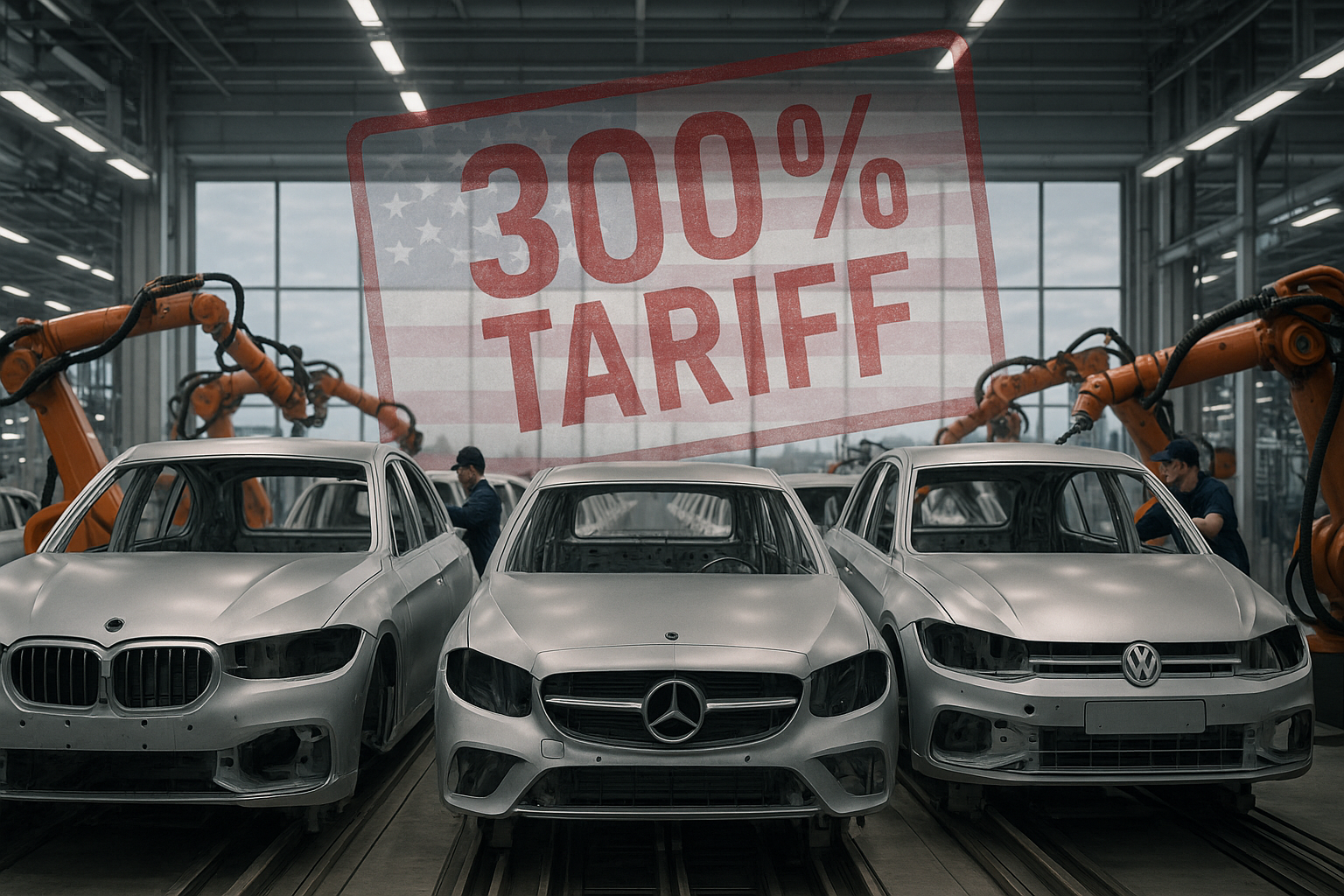Friedrich Merz, Germany's opposition leader, has warned that Donald Trump's proposed 30% tariffs would hit the "core" of German industry. Well, no kidding.
The timing couldn't be more painful. Germany's economy is already sputtering along like an old diesel engine in desperate need of a tune-up, and now this. The specter of Trump-era trade policies has returned just when Europe's industrial powerhouse least needs another crisis to manage.
It's always struck me as odd how politicians act shocked when potential adversaries threaten to do exactly what they've been promising all along. Trump has never been subtle about his love affair with tariffs. They're his go-to solution for practically everything. Trade deficit? Slap on some tariffs. Political disagreement with another country? Tariffs should fix that. Bad weather on a golf outing? Might as well blame China and... you guessed it... tariffs.
Let's take a step back. Germany's economic model deserves a closer look here. For generations, the Germans have essentially run an export machine that would make 18th-century mercantilists proud. Build excellent products—cars, industrial equipment, precision machinery—and sell them worldwide. Meanwhile, keep your own domestic market relatively closed. It's worked brilliantly for decades... until your biggest customer decides they've had enough.
What Merz can't say outright (but I will) is that Germany has grown comfortable with Americans buying their stuff without equal access to German markets. The arrangement has been lovely for Berlin, thanks very much, and they'd prefer not to change it.
The car industry stands to lose the most. BMW, Mercedes, and VW have built factories in the US, sure, but they still ship plenty of vehicles across the Atlantic. A 30% tariff wouldn't just pinch profits—it would fundamentally change where and how these companies operate. The irony? German automakers already employ thousands of Americans in places like South Carolina and Tennessee, a fact their lobbyists in Washington will no doubt repeat until they're blue in the face.
But there's something deeper happening. We're watching the post-Cold War economic consensus crumble in real time.
Remember the old theory? Economic integration would lead to political alignment. Build McDonald's in Moscow, and democracy would naturally follow. Trade with China would moderate its behavior. German engineering would civilize Eastern Europe.
How's that working out?
Instead, economic interdependence has become weaponized. Russia uses gas supplies to twist arms. China demands technology transfers for market access. And now America is contemplating using tariffs not just as economic policy but as a geopolitical club.
German industry finds itself caught between a rock and several hard places. Move more production to America? Possible, but expensive and slow. Turn toward China? Increasingly risky given Beijing's own protectionist instincts and the complicated political landscape. Wait it out and hope the tariff talk blows over? That seems to be the current approach, but hope isn't exactly a business strategy with a great track record.
The most fascinating part of all this (at least to a trade policy nerd like me who's been covering these issues since the first Trump administration) is watching economic theory collide with political reality. Textbooks still preach that free trade maximizes global welfare. Probably true in the aggregate, but politics isn't about aggregates—it's about who wins and who loses. When workers in Michigan believe they've lost out to workers in Bavaria, all those elegant economic models offer cold comfort indeed.
For now, Merz joins the chorus of worried European voices hoping either that Trump doesn't return to power or that these tariff threats are just negotiating tactics rather than firm commitments. But German industrial leaders would be wise to prepare for a world where American consumers—and American presidents—can no longer be taken for granted.
Sometimes, after all, that warning light on the dashboard means there really is something wrong with the engine.
